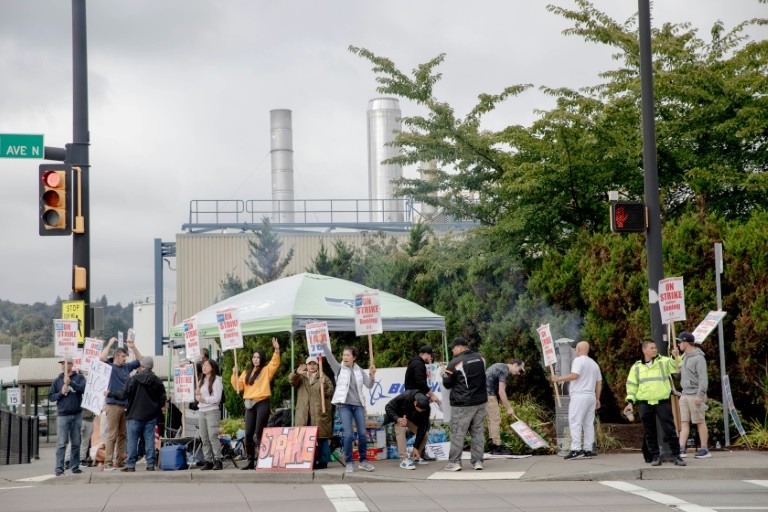
The union for striking Boeing workers said Tuesday the aviation giant was not "taking mediation seriously," after some 33,000 US employees walked out last week over a contract dispute, effectively shutting down two Seattle-area plants.
"We will not mince words -- after a full day of mediation, we are frustrated," said a statement from the International Association of Machinists and Aerospace Workers (IAM), after its representatives met with Boeing negotiators.
"The company was not prepared and was unwilling to address the issues you've made clear are essential for ending this strike: Wages and Pension. The company doesn't seem to be taking mediation seriously," the statement said.
It added that mediation between the union and Boeing would continue on Wednesday.
"Today, we ask Boeing not to miss the opportunity to recognize its workers by presenting a contract that can resolve this labor dispute so we can get back to building and delivering Boeing aircraft," said the union statement.
Members of the IAM District 751 have been picketing 24 hours a day following the walkout early Friday morning, shuttering factories in Renton and Everett that assemble the 737 MAX and 777.
Boeing had been hopeful about averting a strike after reaching a preliminary deal with IAM leadership on September 8 that included a 25 percent general wage increase over four years, reduced mandatory overtime and a pledge to build the next new airplane in the Puget Sound region.
But rank-and-file workers blasted the deal as insufficient, dismissing the 25 percent figure as misleading and inadequate in light of the agreement's elimination of an annual bonus for workers.
Workers also were displeased with other elements of the agreement, including its failure to reinstate pensions. And they said the pledge on building the new airplane in the Puget Sound needed to be strengthened beyond the four-year lifespan of the contract.
Underlying the fury has been a more than decade-long period of essentially stagnant wages at a time when consumer inflation has stressed budgets.








